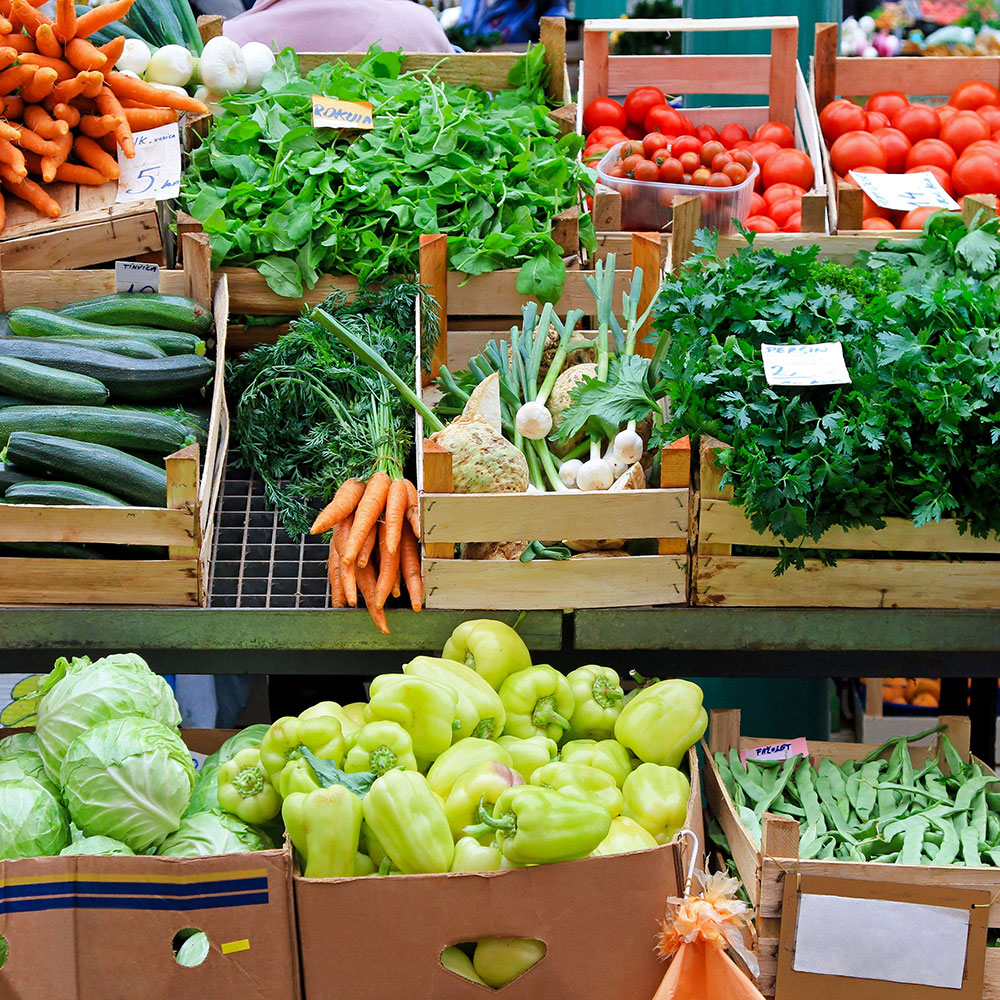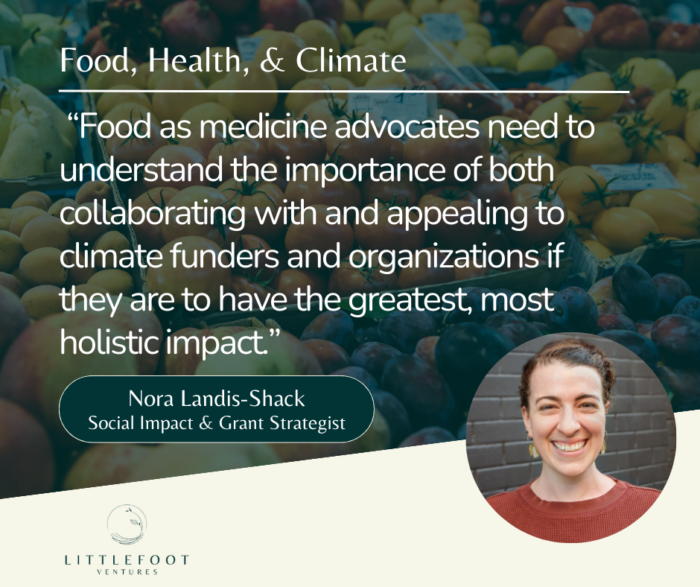The following is an excerpt from Food As/Is, Nora Landis-Shack’s monthly essay series examining the intersection of food as medicine, public health, food policy, nutrition, and more on Substack.
Reflections on a year of food as medicine
In the last year of writing and thinking about food as medicine, I’ve noticed that the space is beginning to feel a lot more crowded these days. I can’t tell if it’s my own community expanding, my algorithms getting sharper, or if food as medicine itself is growing as a field; I have a suspicion it’s a combination of all three. But I’m excited to see more folks are recognizing the connection between food and health, more programs and interventions are getting resourced, and that the fields where I’ve chosen to build my career are starting to talk to one another. I’m also noticing some new themes and directions that the field of food as medicine needs to consider.
This growth, and the accompanying emerging themes and directions, has also inspired my colleague Eva and me to launch the Littlefoot Ventures’ Climate Messaging Mastery Course for those working in the food and public health spaces. This course aims to help participants understand how to align their approaches to food justice with climate work, potentially expanding their impact and creating more sustainable solutions overall.
Here are some of my takeaways as a professional in the food space from the past 12 months:
1. Climate must be part of the conversation.
We’ve long recognized the overlap between our food system and climate change, but fixing the challenges plaguing both has become more urgent in recent years. The Global Alliance for the Future of Food found that our current food system accounts for over 15% of fossil fuel production, and last year’s COP28 summit focused specifically on the role food production plays in climate change. 2024 has kicked off with multiple commitments both globally and locally to address food loss and waste, as well as to reform the agricultural space. In the U.S., we expect that the Farm Bill will also be influenced significantly by the need to address climate change too.
The aftereffects of major weather events reverberate outward, causing disruptions to supply chains, destroying crops, and limiting the immediate and long-term availability of food, especially fresh food, for communities impacted. Additional studies have found that climate change directly impacts food accessibility, safety, and prices. For these reasons and more, food and climate can’t operate in silos if their efforts are to be successful, and food as medicine has an important role to play.
Initiatives focused on nutritious food access will need to consider shipping and storing infrastructure that may be disrupted by climate disaster, while more individually targeted interventions should begin to track the amount of packaging and plastics used. Relatedly, food as medicine advocates need to understand the importance of both collaborating with and appealing to climate funders and organizations if they are to have the greatest, most holistic impact.
2. Money is medicine just as much as food.
Edgar Villaneuva, an activist, philanthropy expert, and author of Decolonizing Wealth, has written extensively about the idea that money can be medicine. An enrolled member of the Lumbee Tribe, Villanueva combines his indigenous heritage with modern philanthropic strategy to think about how money may be used as a tool to restore balance and justice, particularly in the contexts of racial and social justice. His framing applies directly to the food as medicine space as well.
So many of the challenges food as medicine is intended to address – food insecurity, nutritious food access, produce access, etc. – are also financial challenges. Food as medicine is at an exciting place where lots of resources are moving towards it, and funders are excited at the prospect of investing in impactful programs. But we also need to start having some frank conversations about where exactly these resources are going and they’re being invested into.
For example, the recent White House announcement that they are launching partnerships with Instacart, the Rockefeller Foundation and Feeding America is an exciting next step and demonstrates publicly the importance of this kind of work. But I want to make sure we’re still considering and driving resources equitably to so many of the smaller community-based organizations doing critical, on the groundwork that addresses larger systemic issues of inequality and access, and not get complacent in funding the shiny exciting individually focused interventions.
3. Education is the next frontier
As food as medicine grows, the field will likely start to coalesce around centralized ideas, definitions, and trusted sources that will be used to continue expanding the field and educating others. Public health schools and medical schools are already starting to incorporate more nutrition and culinary education into their curricula. Tufts’ new Food is Medicine Institute, the Center for Food as Medicine, and the American College of Lifestyle Medicine are all offering introductory courses and supporting research in the field, and I expect these offerings will grow exponentially.
I’m curious about who gets to own these narratives, and who gets the privilege and responsibility of educating this next generation. I’m also interested in what folks are being taught. While I loved my public health program and learned so much from my professors at Columbia, I also heard plenty of critique of how our learning environment, and course materials perpetuated this ivory tower mentality. I’m noticing this same tension start to emerge with food as medicine, especially when most of the courses I see capitalizing on this space are focusing on dietary patterns and individual behavior change. And I’m worried that this means the field will inevitably slide into the idea that there is a set “right” way to practice food as medicine that may marginalize multiple perspectives, histories, and teachings from different fields and cultures.
This is why my colleague Eva and I are launching a Climate Philanthropy Class specifically for folks who work in the food and public health spaces. It’s a small step, but I’m excited at the prospect of helping folks understand how to ensure their approaches to food justice dovetail with climate work, with the goal of potentially expanding their impact and creating more sustainable solutions overall.
Nora Landis-Shack is a seasoned grant writer and social impact strategist who brings over a decade of experience securing $22M in grants. Holding an MPH from Columbia and pursuing a Masters in Food Policy from NYU (expected 2024), she excels at translating complex topics into engaging stories, leveraging her expertise in health, social determinants, food policy, and the therapeutic aspects of food. She is one of the expert contributors to our Climate Messaging Mastery Course for Food Nonprofits, a 6-week intensive program tailored to empower food-focused nonprofit leaders with the essential skills needed to craft compelling narratives that resonate with climate-focused donors, creating a pathway to secure crucial funding that propels your mission forward. Subscribe here to read more from Nora.

